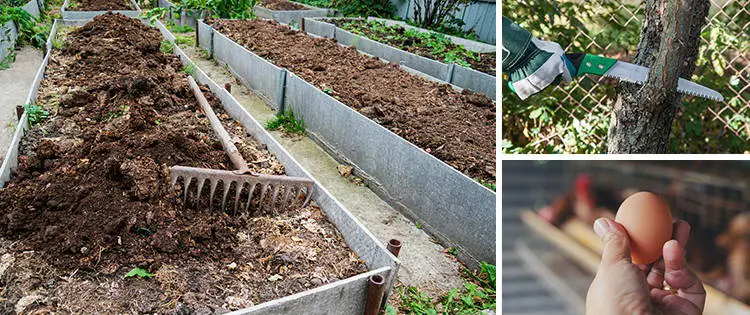When people think of winter, they think gardening is over for the year and livestock is all harvested in Autumn. Obviously, this looks like downtime for the average small-scale homesteader.
However, when you have breeding stock and live in a climate that allows for year-round self-sufficiency, winter days aren’t just cuddling up in a blanket and just watching TV. Nope, I’m still tending to animals, plants, and preparing for the warmer seasons ahead!
Livestock Chores
My first priority of the day is to handle whatever needs to be handled with my livestock animals. I currently have 4 cattle, 18 chickens, 5 pigs, and a horse. Each of them needs their food, water, minerals, etc. every day.
Cattle
I have a bull and two cows that serve as my breeding stock at the moment. I also have a steer that will be harvesting this winter. While the steer being processed will lighten my load through winter a bit, I still have to keep the cattle fed and happy. In my climate, grass does grow in winter, albeit slowly. I supplement with hay every day to ensure the herd stays healthy and maintains their weight. Free-choice minerals and fresh water are supplied daily as well.
The cattle still rotational graze during winter to spread out the manure load and rest the paddocks to harbor the delayed winter growth of the grasses. Every 4 days is my current schedule but I’ll probably be adding more paddocks and reducing the grazing days per paddock soon enough. Each move only takes me about 10 minutes with my wagon wheel pasture divisions.
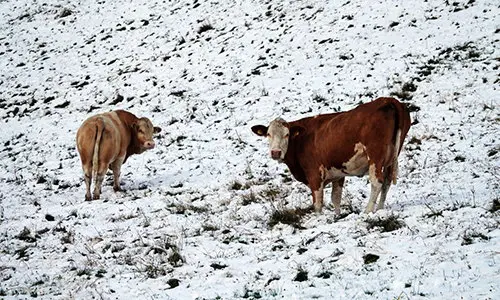
Chickens
My laying hens stay busy during the winter, working their deep litter and turning it into compost and laying eggs at a reduced rate. I also have compost bins in their run so they can scratch the materials to compost them faster and allow them to harvest bugs and biota that love finishing compost piles. I have a DIY automatic feeder and large waterers so my chicken chores in the winter take little-to-no time daily. Grab the eggs, check their supplies, and go. The only days I have more work with them is after a rain when I need to add more almond shells (a free byproduct in these parts) to their run to soak up moisture and manure.
Related: The Ultimate Guide To Composting
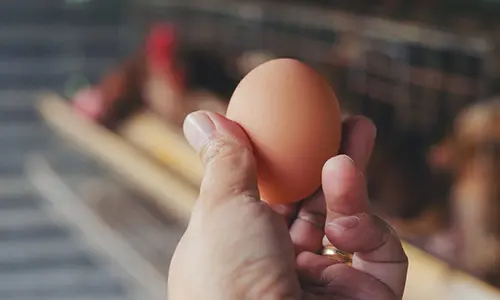
Pigs
I have my two pigs as breeding stock and three feeder pigs. The feeders will be harvested this winter at the same time as the steer, meaning I’ll be loaded with meat soon enough!
My breeders need their daily serving of food and fresh water. They don’t get free choice feed because overly fat breeders reduce performance. I also have to add plenty of almond shells to their deep litter pen when the rain hits. This is much more time-consuming than the chicken run because they plow the shells into the ground and also have a much larger pen than the chicken run. It makes for good compost to harvest eventually though!
Related: 7 Domestic Animals That Are Too Easy To Raise
Horse
Our horse is more of a pet than livestock. She is the manure machine that gives us rich nutrients for garden compost. In the winter she gets fed daily and has an automatic waterer. She also gets a good amount of horse pellets along with her hay. Since rain leaches nutrients from manure quicker than dry conditions, I have to collect manure regularly to add to the compost bins in the chicken run. No big deal, it only takes a few minutes of my day when I bring her food.
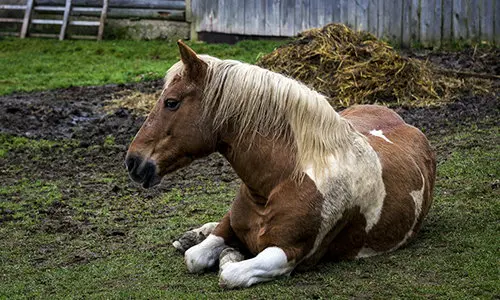
Garden Chores
I’m in USDA Zone 9a, meaning I can grow fresh food year-round! The great thing about winter gardening is that weed pressure is much lower. The bad thing is that heavy rains can harm your crops. I’m not in the place to buy a greenhouse or row covers for the occasional heavy rain, but I may get there someday.
Carrots, radishes, turnips, beets, peas, broccoli, and much more take up rows in the garden during winter. Winter gardening is great because most of these crops can stay in the ground through winter and be harvested right before eating/preparing them.
High-quality compost was added to my garden beds in fall, which is the only fertilizer that goes on my garden (along with another compost load in spring). That reduces my workload through the winter season and if I can get steady rains, I don’t even have to turn on my soaker hoses to irrigate.
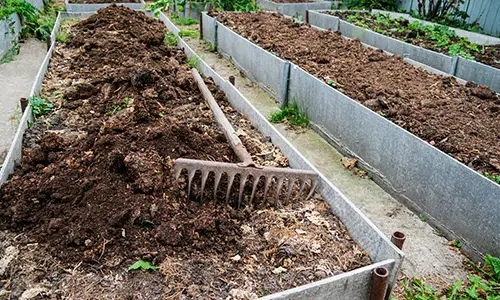
The Orchard
Winter is a great time to plant dormant bare-root fruit and nut trees. This means I may have to go dig some holes and drive to the local nursery to get trees that are known to thrive in my area. This winter I am looking to add about 9 trees to my homestead to add to my existing orchard.
Homestead Projects
The day-to-day tasks in winter don’t take a huge amount of time, so it does leave me some time to work on projects around the homestead to improve efficiency and increase yields. I don’t complete projects every single day but I typically allot time for something beyond the daily chores. Some things I do include:
- Flipping compost piles
- Pruning trees
- Seeding pastures
- Harvesting worms for a protein boost for my hens
- Building trellises for future crops
- Moving pigs to temporary pens to clear new garden plots
- Preserving harvested crops from the garden
I also want to install more self-sufficient projects on my homestead, like rainwater harvesting, passive solar heaters/cookers, biogas collects/compost toilets, and more of the like, although who knows if this will be the winter that this all gets put into place!
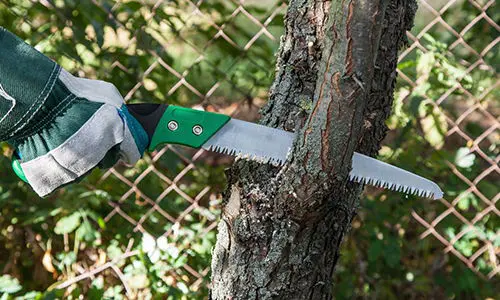
Staying Busy Year-Round
Those in much colder climates and those who aren’t looking to work on the homestead year-round can easily take more rest than I do during winter. You can essentially homestead Spring-Fall by ensuring you harvest all livestock and garden crops in the fall, allowing for complete downtime in winter.
But, since I have a goal of self-sufficiency, I simply can’t go that route. Don’t worry though, I do take vacations occasionally!
You may also like:
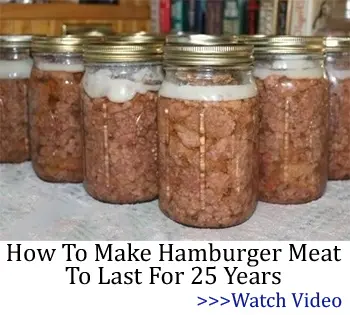 How To Save Every Drop Of Water On Your Property
How To Save Every Drop Of Water On Your Property
What To Do If You Find This Odd Berry? (Video)
Easy DIY 165 Gallon Rain Harvester
How To Heat Your Home Without Electricity

